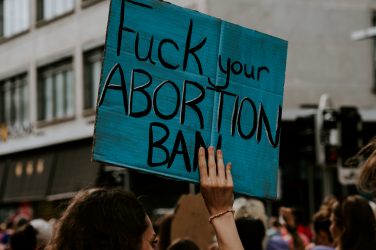6th Sense Staff Writer Maria Taskinen explores what the blacklisting of Alexei Navalny’s political network might mean for the Russian opposition and analyses the EU’s muted response.
It’s been a few days since the Russian opposition leader and anti-corruption activist Alexei Navalny’s political network was blacklisted as a “terrorist-linked” organization by Russia’s financial supervisor Rosfinmonitoring. The same is expected to happen to other anti-corruption organizations affiliated with Navalny later this month. The aggressive effort to suppress opposition activities is now- so strongly on Kremlin’s agenda that the future of the Russian opposition arguably looks darker than ever. With the inner roaring close to be extinguished it seems like the EU is also struggling with finding answers to the on-going crackdown.
To rewind a bit, ever since the return of the opposition leader Alexei Navalny to Moscow in January 2021 tension between the Kremlin and the opposition movements has only kept increasing. Mass anti-corruption protests, viral palace videos, and life-threatening hunger strikes could be one way of summarizing the turbulent political spring in Russia but that would mean showing only one side of the coin. There have also been false juridical convictions, restrictions on freedom of expression and civil society, and continued suppression of the opposition. As usual, while quick movements on both sides have forced the media as well as the international community to stay on their toes, the Kremlin has remained dominant. The latest act to label “Navalny Networks”, the political network linked with Navalny, as “extremist” means that the members and supporters of the group risk facing long prison sentences and markings on their criminal record. It also means that the bank accounts of the organization can be blocked and any form of activity criminalized. Ending up on the blacklist, the “Navalny Networks” now possesses the same ranking in Russia as terrorist organizations such as the Islamic State and al-Qaeda. Feel free to draw your own conclusions.
The “Navalny Networks” now possesses the same ranking in Russia as terrorist organizations such as the Islamic State and al-Qaeda.
There has been public disapproval and criticism from Europe and the US, but, overall, the response has remained unsurprisingly reserved. EU’s diplomatic warnings and sanctions against individual Russian state officials are only a symbolic soft-power answer, shocking least of all the Russian political inner-circle. After all, intervening in Russia’s internal affairs doesn’t really seem to be in Brussels’ interest, particularly when the focus on the other conflicts in the region has been more dominant. Especially the Russo-Ukrainian war has eaten at Europe’s ability to increase its stakes against any new issues emerging in EU-Russia relations. The number of economic sanctions and restrictions is already so high that to come up with new and effective constraints admittedly does look like a challenge.
Ironically, while stakes in the sanctions war have kept increasing, both sides’ economic interdependence has also continued deepening. If all goes as planned, the Nord Stream 2 pipeline will soon intertwine the European energy industry evermore closely with Russian energy production. In this light, it’s rather puzzling to think of economic sanctions as the most viable means to an end. Not only that, but the same non-win dilemma seems to be stretching out all the way to the Navalny case. To put it harshly, the fact that the EU is currently more dependent on Russian energy than ever plays a crucial role in why the future of the Russian opposition looks so grim. Navalny and his organizations are not only being suffocated by the Putin administration, but quite frankly, are getting bypassed by Europe whose hands are tied up with other issues.
But what if the actual motivation to help is also missing? ‘Realpolitik’ linked with the Ukrainian conflict or economic arm wrestling is one thing, but what about the EU’s preferences? Does it even want to help Navalny? After all, Navalny not only exposes Kremlin’s dirtiest and most corrupt secrets but also appeared supportive of Russia’s occupation of Crimea. He’s not a “pure” or “innocent” denouncer of Russia and advocate of the EU’s geopolitical principles, and he has publicly identified himself as a “national democrat” determined to work in Russia’s own interest. It seems like in Europe (as well as in Russia itself) he could be seen as an unpredictable Robin-Hood-like figure who, while sparking interest and approval, is also regarded with suspicion and reservation. In fact, Brussels took noticeably long before acting on Navalny’s imprisonment with an outcome that wasn’t directly in Navalny’s supporters’ best interest. The EU released a sanctions list that is missing his allies’ ‘most-wanted’ names of the biggest Russian oligarchs whose mentioning would undoubtedly have had larger consequences for Putin’s administration. One could wonder: if the political activist currently held in prison would be an pure anti-Russian, liberal democratic messenger, could Brussels manage to find one more card up its sleeve to help? Sure, that’s only speculation, but I think that at least the tone of the dialogue would most certainly be different.
It is safe to say that the tensions between Putin and Navalny’s supporters will only increase.
Whatever happens to the Russian opposition now remains to be seen, but to paraphrase Diana Rudkova, a member of Navalny’s anti-corruption movement, it’s clear that the blacklisting means the end of an era for now. However, with Duma elections on the way, it is safe to say that the tensions between Putin and Navalny’s supporters will only increase and high-risk attempts to protest will perhaps occur. Also, who knows if Navalny’s risky behaviour in jail keeps continuing. My personal (and hopeful) guess is that the dissent will find new ways to stay afloat, and that the opposition will not stop fighting for a more open and diverse political culture – with or without European help. It’s a shame that so much seems to be resting on Alexei Navalny, since this focus tends to overshadow other Russian opposition movements eager to get their voices heard. But as long as Navalny remains in the picture, the prominent role he has created for himself will at least keep the motions of the Russian opposition alive.
Cover photo by Liza Pooor (Unsplash), Unsplash licence










